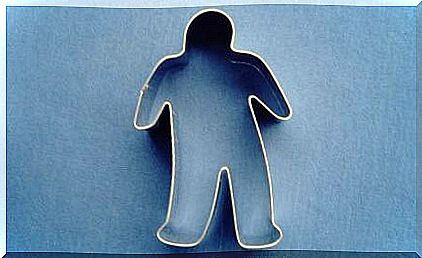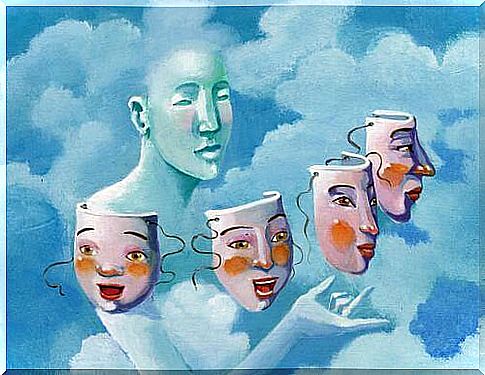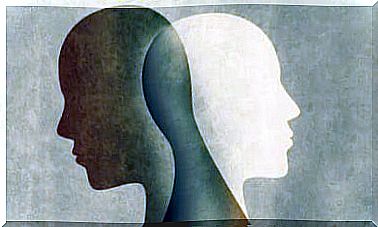Normopathy: The Unhealthy Desire To Be Like Everyone Else

We are not painters. It is not our duty to be like those around us, to dissolve like sugar poured into coffee. Our individuality makes us unique and valuable. Today, however, we are witnesses, and sometimes victims, of what is called normopathy. It is the almost obsessive need to be like everyone else.
This is not a new phenomenon. In fact, it has been going on for quite some time. But writers and psychoanalysts like Christopher Bollas point out that technology is changing the way we think, and even our personality. What we see on our phone or computer screen suddenly has an enormous and flooding power over us.
Normopathy warns us about a very concrete aspect. There are many normopaths who live among us. There are people who are not sure of their own identity, who have not worked to get to know themselves. Basically, their life goal is to obtain social validation.
They want to give their individuality low priority so that they can fit into what is “normal”. Thus, imitating what people do, say or think on social media will give them psychological balance and peace of mind.
We dare say that their biggest fear is being abnormal. Being able to fit into the form that is invented and impossible is extremely worrying for them. Also, every normopath feels melancholy and empty.

Normopathy is unhealthy
We want others to think we are special and unique. However , we often like to be like other people and fit in with what is “normal” and expected. In this regard, if we choose to have our own voice and act on our desires and motivations, people will begin to point at us.
Albert Ellis, the famous cognitive psychotherapist, used to say that the key to happiness lies in learning to be oneself in a world that is almost always unfair. Whether we like it or not, we have to deal with criticism, difficulties and injustice.
But normopaths do not deal with anything. They just imitate, obey and give in. Normopathy is extremely passive, which leads normopaths to validate and accept illogical actions. Dr. Christopher Bollas talks about the case of a young man who tried to commit suicide because he was not as good at football as his friends were.
How can we define a normopath?
Psychoanalyst Joyce McDougall, one of the most important specialists in childhood schizophrenia, coined the word “normopathy”. In her book, Plea for a Measure of Abnormality, she used this word to define the fear of individuality.
- Normopaths are people who have an ongoing desire for social acceptance. This intense desire causes them to set aside their own identity and even their dignity.
- Almost without realizing it, they end up creating a fake version of themselves. They are just focused on the world around them and living their lives glued to what is happening around them. This includes friends, communities and social media.
- Howard Gardner and Katie Davis conducted a study in which they pointed out that some young people use what they have defined as “appmentality”.
- Some teens navigate their lives the way they navigate their applications: with just a few options, using the same tools others use, and avoiding unexpected dangers.
- Normopathy translates into disorder. Normopaths often feel lost and empty. They are completely unrelated to the emotional world, which means they do not know how to deal with frustration, disappointment or failure.
- Their “appmentality” does not allow them to reflect on life. They are completely unaware of how to open the door to their inner self. They have never explored who they are as a person.

What can we do about normopathy?
Exercising individuality is the key to curing normopathy. A normopath is an individual who refuses his inner life to acquire solely to exercise senseless imitation until they finally become a superficial and empty object. This leads to suffering and dissatisfaction.
When a normopath finally realizes that they are suffering, they will feel obligated to ask for help and start the journey of self-discovery where they can work with self-confidence and individuality. This is when the individual will finally cut the umbilical cord and be able to live life as they wish. They will finally understand that there is nothing as abnormal as obsession with being normal.









